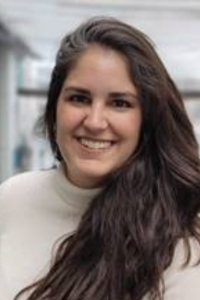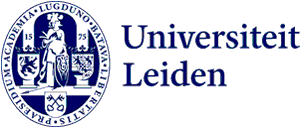
A message in the local group chat during a measles outbreak, and other solutions for a healthier city
How can we ensure that young people vape less? How do we prevent the spread of scabies among students? And how can we encourage physical activity at work? Students from Health and Medical Psychology recently presented their answers to these questions to professionals in the field.
In the course Designing Interventions for Behavioural Change, Master’s students learn to develop interventions that promote healthy behaviour. Partners from professional practice provide real-world cases. During a final session, students pitch their proposals to stakeholders, lecturers, and fellow students. Afterwards, they present their intervention again in a market stall setting, allowing for more dialogue and nuance.

Vaping and vaccination
‘In this course, students work on real challenges from practice. We benefit from longstanding collaborations within the Leiden Healthy Society Centre and the Health Campus The Hague,’ explains lecturer Laurens van Gestel. ‘We work together with the Academic Workplace for Public Health, the Municipality of Leiden, and the Healthy University initiative. Topics include, for example: vaping among young people, meningococcal vaccination, promoting sufficient physical activity at work, preventing the spread of scabies among students, and encouraging people to get tested during a measles outbreak.’
Extra motivation
As coordinator, it takes additional time to set up and maintain these collaborations, but the benefits are substantial. ‘Students gain a richer learning experience, can collaborate with their target group and relevant stakeholders, and are therefore more motivated to produce a high-quality final product. The stakeholders, in turn, receive relevant knowledge from our students that they can apply in practice. As a lecturer, it is also rewarding: you see students really take ownership, and you can create a tangible connection to professional practice.’

‘Students are not limited by the status quo’
‘It’s always enjoyable for the Public Health Service to provide cases. Because of the enthusiasm with which students immerse themselves in a question, I begin to view my own work from a different angle. Moreover, students are not influenced by the status quo, which means they come up with out-of-the-box solutions. Sometimes these solutions cannot immediately be implemented in practice, but there are often very valuable elements in them.
For instance, last year students proposed adding an extra tile to a student app to inform them about scabies – an idea that still comes up in our discussions. And this year, in the case about testing willingness, students drafted a WhatsApp message that key figures in a neighbourhood could send when there is, for example, a measles outbreak. Very practical, and something I will share with colleagues to explore whether we can apply it in practice.’
Anja van der Schoor (GGD Haaglanden, Programme Lead Infectious Disease Control AWPG Lumens, Programme Lead CAPI)

‘A shock effect made the seriousness of the issue immediately clear’
‘I always enjoy joining in with the creativity and enthusiasm of the students. For me, this collaboration is the connection to education; I find it inspiring that students work with concrete questions and use their knowledge and fresh perspective to design interventions. It provides me with new perspectives on how we can create conditions that enable staff to work healthily.
The process with the students went well; the only slight challenge was scheduling conversations with colleagues (due to a holiday and the busy start of the academic year), meaning these took place a bit later than planned. I thoroughly enjoyed the pitches! They really sparked my curiosity about the interventions. One group intentionally used a shock effect, which made the seriousness of the issue – which might otherwise have been brushed aside – immediately visible and thought-provoking. Brilliant!’
Marjolijn Clarenbach (Policy Advisor Healthy University & Absence Management, Leiden University)
